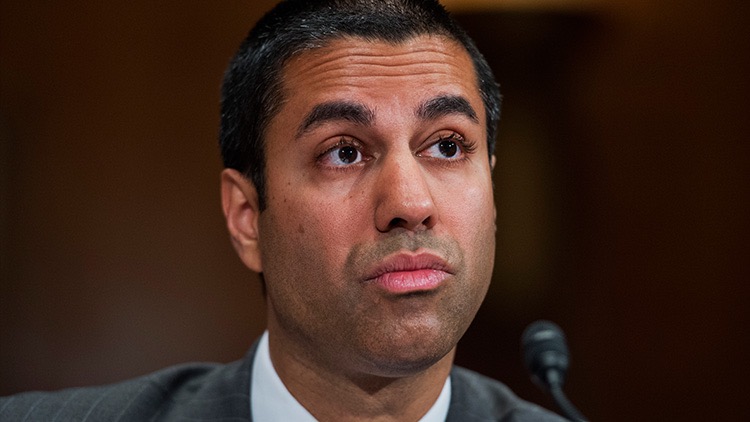Pai to ACA: Broadband Is an 'American' Issue

The smarter way to stay on top of broadcasting and cable industry. Sign up below
You are now subscribed
Your newsletter sign-up was successful
FCC chairman Ajit Pai said that broadband is the infrastructure challenge of our time, and he sees cable operators not as an enemy of that effort but as partners in better enabling citizens to reap the benefits of the digital revolution.
Former chairman Tom Wheeler often framed ISPs as gatekeepers and potential snakes in the virtuous garden in need of minding.
ACA president Matthew Polka, who interviewed the chairman Thursday at the American Cable Association annual summit, called Pai's a "refreshing take"—to applause from members.
Pai was speaking in advance of their visits around Washington, D.C., to make the case on Capitol Hill and elsewhere for the important role of small and medium sized telecoms/cable operators and the need to recognize their particular challenges.
Polka pointed to the active agenda of the new chairman, and that came even before he had announced a busy meeting agenda for April that includes a revamp of business data services (BDS) that is not expected to include potential new price regs on cable operators ISPs, as his predecessor had proposed.
Pai said that his short-term goals include promoting infrastructure investment and whether any regs currently on the books are impeding that—the April agenda includes some proposals to speed that deployment by removing regulatory barriers.
Pai said broadband is not a Republican or Democratic issue, but an American issue and said he would work with anyone to make that happen.
The smarter way to stay on top of broadcasting and cable industry. Sign up below
The chairman said that on a recent road tour to Pittsburgh—ACA's home base—he had heard from operators how hard it was to build out their networks and from entrepreneurs building businesses with those networks and creating jobs. He said it inspired him to want the FCC to aid in that mission.
Pai said he would be taking more such trips.
Polka brought the conversation back to infrastructure. He said his members have looked at deployment from a defensive position because—under Democratic FCCs over the past eight years—money was being thrown at the problem, in some cases where service was already being provided.
Pai said he wants to make sure cable has a chance to compete, citing the Connect America Fund II auction as one place where operators could compete for money.
He made a pitch for gigabit opportunity zones for infrastructure deployment, providing tax incentives for carriers to build out.
Pai said he was hopeful Congress would incorporate the idea into planned infrastructure legislation and said smaller cable operators could have a big role in such a program.
As to overbuilding, the chairman pointed out that he had circulated an item removing the overbuild condition on the Charter-Time Warner Cable merger—which was in response to an ACA petition. The chairman is no fan of overbuilding. He said he wanted to revise that condition because "the last thing we want to do is to penalize you for the investments you have already made." That line drew applause as well.
Asked about examining the video marketplace, Pai’s answers were politely noncommittal. He said he had visited the National Cable Television Cooperative, the program buying consortium of smaller cable ops, and knew some of the challenges they were facing. He also said he was "teasing out" some of the questions in the access to video proceeding whose comment deadline was last month. But he had no definite signals of a direction. He said he was still trying to figure out the FCC's appropriate role. "I have no news to break on that front," he said. Pai has historically not been a fan of inserting the FCC into contract issues.
The chairman has said he planned to take a weed whacker to unneeded regs. Polka asked him for a brief tour of that landscape and how he might be approaching it.
For one, Pai said the FCC is looking hard at the actual impact of regulation on businesses. He said regulatory inertia is one of the most powerful forces, a force he was ready to reckon with aggressively.
Polka said ACA would be happy to bring in truckloads of regs for shredding.
Contributing editor John Eggerton has been an editor and/or writer on media regulation, legislation and policy for over four decades, including covering the FCC, FTC, Congress, the major media trade associations, and the federal courts. In addition to Multichannel News and Broadcasting + Cable, his work has appeared in Radio World, TV Technology, TV Fax, This Week in Consumer Electronics, Variety and the Encyclopedia Britannica.

